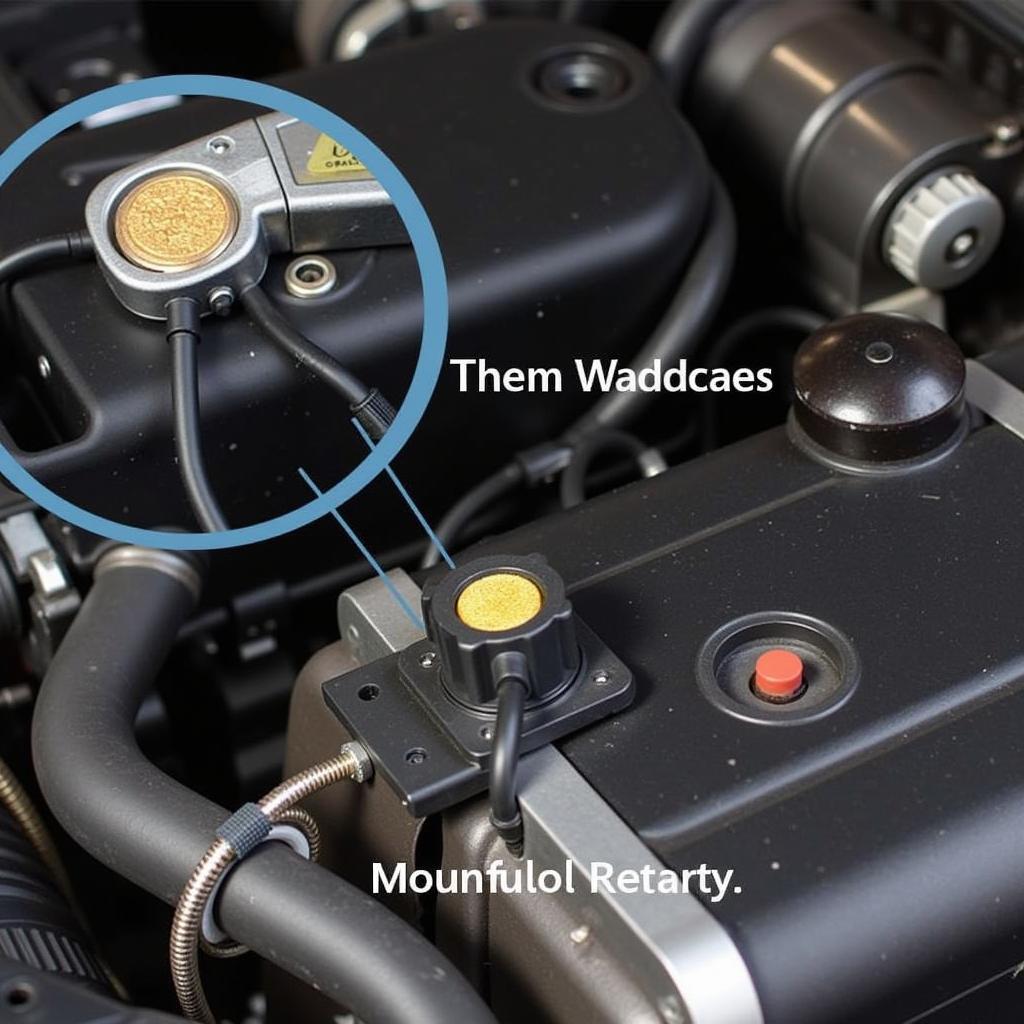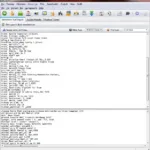The P0325 code is a common OBD2 (On-Board Diagnostics) trouble code that indicates an issue with the knock sensor 1 circuit in your vehicle. This code can be triggered by a variety of factors, ranging from a faulty sensor to wiring problems. Understanding the P0325 code and its implications is crucial for maintaining your car’s performance and fuel efficiency.
What Does the P0325 Code Mean?
The “P” in P0325 signifies that it’s a powertrain code, related to the engine, transmission, or associated components. The code specifically points to a problem with the knock sensor 1 circuit, which is responsible for detecting engine knocking or detonation.
Engine knock occurs when the air-fuel mixture in the cylinders ignites unevenly, creating pressure waves that can damage the engine. The knock sensor detects these abnormal vibrations and sends a signal to the Engine Control Module (ECM). The ECM then adjusts the ignition timing to prevent further knocking.
When the P0325 code appears, it means the ECM is not receiving a proper signal from the knock sensor 1, indicating a potential malfunction in the sensor itself or its circuitry.
Common Causes of the P0325 Code
The P0325 code can be triggered by several factors, including:
- Faulty knock sensor: A malfunctioning knock sensor is a common cause of the P0325 code. Over time, the sensor can wear out or become damaged due to exposure to heat, vibration, and engine fluids.
- Wiring problems: Damaged, corroded, or loose wiring in the knock sensor circuit can disrupt the signal transmission between the sensor and the ECM.
- Loose or damaged connector: The electrical connector to the knock sensor can become loose or damaged, leading to a poor connection and signal loss.
- ECM issues: In rare cases, a faulty ECM could be the culprit behind the P0325 code, though it’s more likely that other components are at fault.
Symptoms of a P0325 Code
Besides the illumination of the check engine light, you may experience other symptoms if your vehicle is experiencing issues related to the P0325 code:
- Engine knocking or pinging: This is a distinct sound that occurs when the air-fuel mixture in the cylinders explodes unevenly.
- Decreased engine performance: The ECM may retard the ignition timing to prevent knocking, which can lead to reduced power and acceleration.
- Poor fuel economy: The adjusted ignition timing can also negatively impact your vehicle’s fuel efficiency.
- Hesitation or misfires: In some cases, the engine might hesitate during acceleration or experience misfires due to improper timing.
Diagnosing and Fixing the P0325 Code
It’s crucial to diagnose the root cause of the P0325 code before attempting any repairs. Here are the common steps involved in diagnosing and fixing the issue:
- Retrieve the code: Use an OBD2 scanner to read the trouble codes stored in your vehicle’s ECM. Note any other codes present, as they might be related.
- Inspect the knock sensor: Visually inspect the knock sensor for any signs of damage, corrosion, or loose connections. Check its wiring harness for any visible issues.
- Test the sensor’s resistance: Using a multimeter, test the knock sensor’s resistance according to the manufacturer’s specifications. A reading outside the specified range indicates a faulty sensor.
- Check the wiring harness: Inspect the wiring harness for any breaks, fraying, or loose connections between the knock sensor and the ECM.
- Test the voltage: Using a multimeter, check the voltage at the knock sensor connector while the engine is running. Compare the reading to the manufacturer’s specifications.
- Replace faulty components: Replace any faulty components, such as the knock sensor, wiring harness, or connector, with high-quality replacements.
- Clear the code: After completing the repairs, clear the trouble codes using the OBD2 scanner and test drive the vehicle to ensure the issue is resolved.
Importance of Addressing the P0325 Code
Addressing the P0325 code promptly is crucial to prevent potential engine damage and ensure optimal vehicle performance. Ignoring the code can lead to:
- Severe engine damage: Continued knocking can damage pistons, cylinder walls, and other engine components, leading to costly repairs or even engine failure.
- Reduced fuel economy: The ECM’s adjustments to prevent knocking can result in decreased fuel efficiency, costing you more at the pump.
- Failed emissions tests: In some cases, a malfunctioning knock sensor can trigger other codes that might lead to failed emissions tests.
FAQs about the P0325 Code
Q: Can I drive with a P0325 code?
A: While you might be able to drive short distances with a P0325 code, it’s not recommended. Continuing to drive with a faulty knock sensor can lead to severe engine damage.
Q: How much does it cost to fix a P0325 code?
A: The cost of repair depends on the specific problem. Replacing a knock sensor is relatively inexpensive, while addressing wiring issues or a faulty ECM can be more costly.
Q: Can a bad knock sensor cause other problems?
A: Yes, a malfunctioning knock sensor can indirectly cause other issues, such as reduced fuel economy, decreased engine performance, and potential damage to other engine components.
Seeking Professional Help
While diagnosing and fixing the P0325 code might seem straightforward, it’s recommended to seek professional help if you are not comfortable working on your vehicle. A qualified mechanic can accurately diagnose the issue, ensure proper repairs, and prevent further damage to your engine.
Need Assistance with Your OBD2 Codes?
If you encounter the P0325 code or any other OBD2 codes and need assistance, our team of experts at OBDFree is here to help. Contact us via WhatsApp: +1(641)206-8880 or Email: [email protected]. We offer 24/7 customer support to address your queries and guide you through the diagnostic process.


